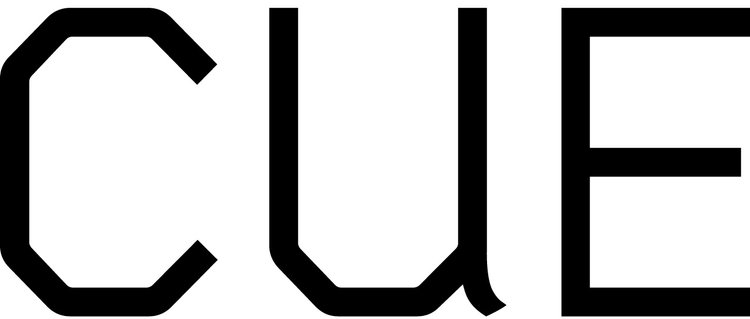Happening of the Investigation of the Dominican Racial Imaginary
Saturday, September, 25, 2-5pm
FREE
Location:
Duarte Square
Located at the intersection of Ave Of Americas, Canal St, and Grand St
New York, NY 10013
In conjunction with the exhibition Lizania Cruz: Gathering Evidence: Santo Domingo & New York City and presented in partnership with Reconoci.do and We Are All Dominican, please join us off-site in Duarte Square for a happening as part of Cruz’s ongoing project, the Investigation of the Dominican Racial Imaginary. Duarte Square is named after Juan Pablo Duarte (1813-1876), a Dominican military leader, writer, activist, and nationalist politician who was the foremost of the founding fathers of the Dominican Republic. A reading of different historical timelines of the creation of the Dominican Republic as a nation in front of the Duarte monument will be followed by a conversation on the African roots both in Merengue and Kompa. The last hour will be devoted to a Merengue and Kompa class with dance instructor Julio Jean, part of Cumbe Center for African and Diaspora Dance.
Access notes: This event will take place outdoors in a public space. Duarte Square is not a busy park, although it is between two busy avenues: Canal St. and 6th Ave. Water, snacks, and folding chairs with backs will be provided. There are a few benches under small trees which provide a bit of shade. If you have access questions or needs, please contact info@cueartfoundation.org (ideally with at least 48 hours before the event) and we will do our best to accommodate you.
Lizania Cruz is a Dominican participatory artist and designer interested in how migration affects ways of being and belonging. Through research, oral history, and audience participation, she creates projects that highlight a pluralistic narrative on migration. Cruz has been an artist-in-residence and fellow at the Laundromat Project Create Change (2017-2019), Agora Collective Berlin (2018), Design Trust for Public Space (2018), Recess Session (2019), IdeasCity: New Museum (2019), Stoneleaf Retreat (2019), Robert Blackburn Workshop Studio Immersion Project (2019), A.I.R. Gallery (2020-2021), BRIClab: Contemporary Art (2020-2021), Center for Book Arts (2020-2021), and Jerome Hill Artist Fellow, Visual Arts (2021-2022). Her work has been exhibited at the Arlington Arts Center; BronxArtSpace; Project for Empty Space; ArtCenter South Florida; Jenkins Johnson Project Space; The August Wilson Center; Sharjah’s First Design Biennale; and Untitled, Art Miami Beach; among others. Most recently, she is included in ESTAMOS BIEN: LA TRIENAL 20/21 at el Museo del Barrio, the first national survey of Latinx artists by the institution. Furthermore, her artworks and installations have been featured in Hyperallergic, Fuse News, KQED arts, Dazed Magazine, Garage Magazine, and The New York Times.
Julio Jean is a renowned master Haitian dance teacher and choreographer with 20 years of experience. His dancing is both graceful and magnetic. In his teaching, Julio pays great attention to detail while bringing forth the joy and beauty of the dances. Julio’s choreography blends traditional Haitian forms with modern and contemporary dance to create compelling movement narratives. Julio studied with Lavinia Williams, a company member of Katherine Dunham, at the National School of Arts in Haiti. In 1989, he moved to New York City, and worked directly with Katherine Dunham teaching traditional Haitian dance for her teacher trainings. He has been a guest teacher at Webster University in Saint Louis and Humboldt University, and has taught workshops in San Francisco, Milwaukee, and at the Dance New England Dance Camp in Poland, Maine. Among other venues, Julio’s performances have been seen at Alvin Ailey for National Dance week and at Summer Stage in 2010. Currently, Julio teaches in New York City and at the New Jersey Performing Arts Center. Julio is also a songwriter and composer. He has released an album that encompasses the panorama of traditional Haitian music.
Reconoci.do is an independent and pluralistic civic network made up mainly of young Dominicans of Haitian descent. Reconoci.do defends human rights and promotes a real and effective integration into Dominican society of Dominicans of Haitian descent. With a presence throughout the Dominican Republic, Reconoci.do holds the vision of a multicultural country where diverse people coexist with dignity, without stigma or discrimination, and their fundamental rights are respected by society and protected by the State.
We Are All Dominican (WAAD) works in solidarity with movements led by Dominicans of Haitian descent fighting for inclusion and citizenship rights, and seeks to educate and activate the Dominican diaspora in order to challenge anti-Haitian and anti-Black discourses. Our collective is part of a long tradition of collaboration on the island. Our work is one of many examples of transnational solidarity that has been taking place for a long time. A daily practice. Transnational solidarity to combat anti-Blackness.
This event is supported by Reconoci.do and We Are All Dominican (WAAD)



